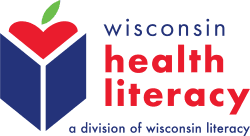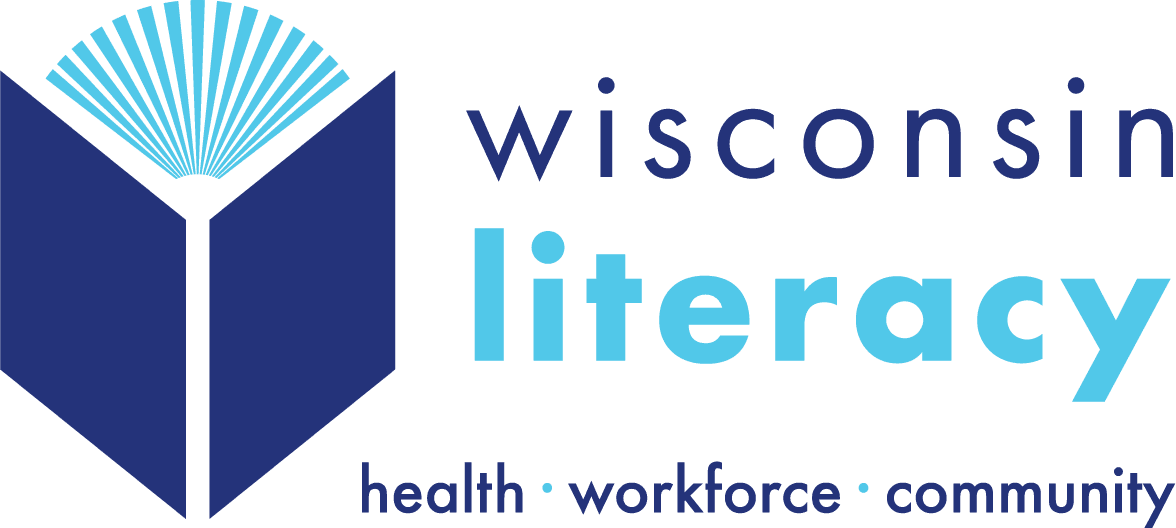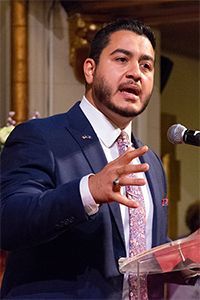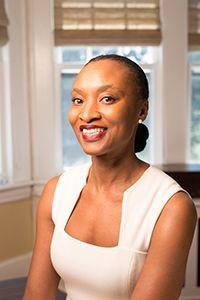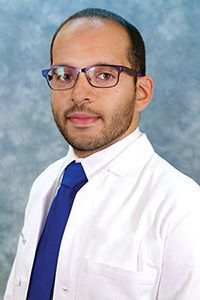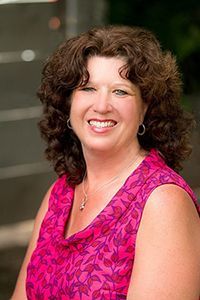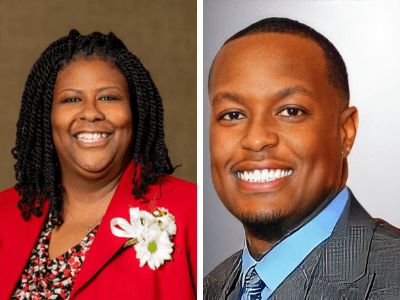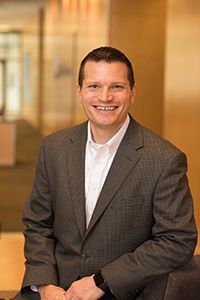Plenary Speakers
-
Dr. Abdul El-Sayed
Physician and Host of American DissectedDr. El-Sayed reflects on his experiences as a physician, scientist, former health commissioner, podcast host, and CNN commentator to share key insights about the challenges and opportunities of science communication as they apply to the pandemic.
Some insights include:
1. Science is not a body of knowledge, it’s a process—and sharing that process is critical to engaging with vaccine hesitant people.
2. Narrative is how people instinctively make sense of the word. Bring data, but don’t forget to tell the story of that data.
3. Communicators have to be thoughtful about their audience—and understand that their audience may have different values and beliefs.
4. People are a lot more likely to listen to us when they understand why we care, not just what we care about. -
Emma Andrews, Pharm.D.
Vice President, Patient Advocacy
PfizerEmma will discuss the importance of clear health communications and how we can empower patients seeking care in “the new normal.” She highlight several initiatives Pfizer is leading to advance health literacy, health equity, and patient access to information. Attendees will be able to:
-- Identify health literacy trends and deficits facing communities across the U.S
-- Understand the connection between Health Literacy and Health Equity and how low health literacy has a negative impact on health outcomes. -
Dr. Jorge Rodriguez
Instructor in Medicine, Hospitalist
Harvard Medical School
Division of General Internal Medicine, Brigham and Women’s HospitalDr. Rodriguez's research and passion lie in the meaningful intersection of medicine, social justice, and technology. He is a digital health equity researcher and hospitalist in the Division of General Internal Medicine and Primary Care at Brigham and Women's Hospital and Harvard Medical School. He completed his Internal Medicine training at Massachusetts General Hospital. He also completed a Clinical Informatics fellowship at Beth Israel Deaconess Medical Center. In this talk, he will provide an overview of existing digital health disparities, opportunities to bridge these gaps, and why digital inclusion matters for healthy communities.
-
Gail Kouame, MLIS
University of South AlabamaJustice-involved people are often overlooked for population health initiatives as they reside separately from the community during incarceration, and the correctional system infrastructure can be daunting. Successful interventions require collaborative partnerships and innovation. This session's presenter will describe an NIH-funded study conducted with justice-involved people to improve their health and reduce recidivism. This project won the 2020 Frank Bradway Rogers Health Information Advancement Award from the Medical Library Association. The study investigators initiated partnerships with a health literacy expert and mission-driven technology company in their development of the assessment tool and the educational intervention. Attendees will learn findings and lessons from the study as well as, strategies for addressing policy and practice implications.
-
Gina Green-Harris, MBA, Co-Investigator, Director
Bashir Easter, PhD, Assistant Director
Panel of Center for Community Engagement and Health Partnerships
University of Wisconsin, MilwaukeeIn this presentation, you will hear from our staff, Community Advisory Board (CAB), and community stakeholders. We will share our Asset Based Community Development (ABCD) model, our newly implemented cohort model, CAB structure, and our community scientist efforts. We will share how our work has resulted in increased enrollment, the development of more than 15 partnerships with community stakeholders and has supported our retention of participants at 73%. We will also provide space for a robust discussion of how this model is replicable.
-
Kevin Moore
CEO — Community Plan of Wisconsin
CEO – Individual and Family Plans of Illinois
UnitedHealthcare Community & StateThis plenary will explore the challenges and opportunities to engage with individuals and families on health care issues, and the importance of maximizing each point of contact to support member/patient engagement.
-
Mystery Closing Keynote
In this era of ‘fake news’ and ill-informed influencers, effective science communication is vital for maintaining public trust. Our mystery keynote speaker has spent the last decade learning how to be a better communicator. That’s including tweeting and blogging, as well as working with artists, animators, and illustrators. In their presentation, they will talk about their journey to becoming an engaging and trusted public communicator of science. They’ll also reflect on the good, the bad, and the ugly of communicating science during the pandemic.
